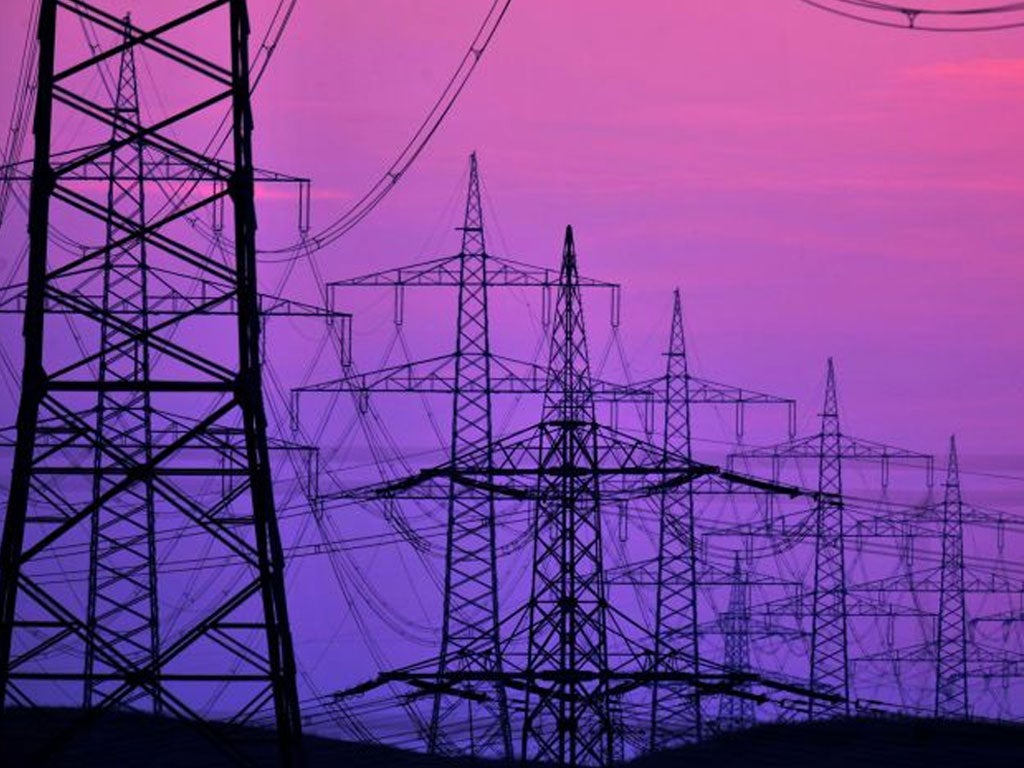Britain faces higher risk of blackouts over next five years as power plants shut down, warns leading engineering body
Royal Academy of Engineering says pressure will build to breaking point next winter – and calls on the Government to invest in modernising the system

Your support helps us to tell the story
From reproductive rights to climate change to Big Tech, The Independent is on the ground when the story is developing. Whether it's investigating the financials of Elon Musk's pro-Trump PAC or producing our latest documentary, 'The A Word', which shines a light on the American women fighting for reproductive rights, we know how important it is to parse out the facts from the messaging.
At such a critical moment in US history, we need reporters on the ground. Your donation allows us to keep sending journalists to speak to both sides of the story.
The Independent is trusted by Americans across the entire political spectrum. And unlike many other quality news outlets, we choose not to lock Americans out of our reporting and analysis with paywalls. We believe quality journalism should be available to everyone, paid for by those who can afford it.
Your support makes all the difference.Britain’s aging power supply means the country faces a higher risk of blackouts over the next five years, the leading body of engineers has warned.
In a report published by the Royal Academy of Engineering today, it was predicted that pressure on the system could peak next winter, at which point it will face an increased chance of failures “jeopardising the country’s power supply”.
The warnings follow similar concerns voiced by National Grid last week, which said the risk of electricity shortages this winter is at its highest level for nearly 10 years.
And today’s Government-commissioned study said that while projected levels of demand should be met, there will be very little margin for error to cope with events like low wind, unusually cold weather or unplanned plant outages.
Britain’s power supplies are set to be hit by the need to meet European regulations on emissions – if the Government does not invest to cut down on pollution, several aging coal and oil-fired power stations will need to be closed, the report warned.
In addition, four nuclear plants across the country are scheduled for shut down by 2019.
Dr John Roberts, chairman of the engineering report's working group, said: “Although the combined closures are not expected to bring the total available electricity capacity below the predicted peak demand, a reduced margin in the power available at any given time would reduce the flexibility of the system and increase the chances that otherwise manageable failures could jeopardise the country's power supply.
“The longer a low capacity margin persists, the greater the chance of experiencing a combination of challenging events during that time.”
The report recommended the Government secure more private investment to fund a modernised and more sustainable system. On the same day that the Chancellor, George Osborne, announced a deal to allow Chinese companies to own a majority share in British nuclear power plants, the academy highlighted a lack of investment stemming from uncertainties over possible reforms of the electricity market.
“Modernising and decarbonising the system will come at a cost, with likely rises in the unit price of electricity and difficult decisions will need to be made,” Dr Roberts said.
“This will only be achievable with the consent of the public and it is vital that government and industry work together to foster a constructive dialogue with the public about the challenges we face in achieving a low carbon, secure and affordable energy system for the future.”
Subscribe to Independent Premium to bookmark this article
Want to bookmark your favourite articles and stories to read or reference later? Start your Independent Premium subscription today.
Join our commenting forum
Join thought-provoking conversations, follow other Independent readers and see their replies
Comments